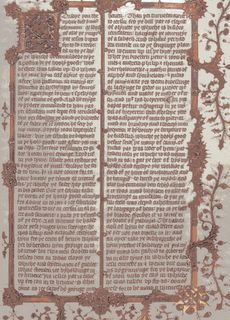
Ever since John Wycliffe finished his English translation of the Bible way back in 1382, English-speaking people have tried again and again to produce the perfect translation. The success of Wycliffe’s Bible led to William Tyndale’s version in 1526. Soon after Tyndale, English Bibles exploded on the scene: Coverdale’s Bible in 1535; Matthew’s Bible in 1537; the Great Bible in 1539; Geneva Bible in 1557; the Bishop’s Bible in 1568 and the King James Version in 1611.
The King James dominated the scene until Britain’s English Revised Version (ERV) was published in 1881. Across the pond, American’s wanted their own Bible so a committee revised this newest translation to produce the American Standard Version (ASV) in 1901. It was very close to the ERV, basically changing idioms, spelling and word order. This ASV was very accurate and very literal. Some criticized it for being too stiff and unnatural. It most certainly did not carry the poetic beauty of the KJV. Concerning this version, Charles Spurgeon once said, “Strong in Greek, weak in English.”
In 1952, the ASV was revised and the Revised Standard Version (RSV) came on the scene. However, although very little of the ASV remains in the RSV. Overall, it is a decent Bible (especially the New Testament) but it took some well-deserved criticism for its unfortunate translation of several key passages in the Old Testament (such as Isaiah 7:14 and Genesis 22:18). Because of this, the RSV never really took off and is regarded with disdain by much of the conservative evangelical community.
A new era of Bible proliferation opened in the late 1900s: New American Standard Bible in 1971 ( a revision of the 1901 ASV); New International Version in 1978; the New King James Version in 1979; the New Revised Standard Version in 1989 and many more.
Some of these are very good (NASB, NKJV), some are good (NIV) and some are not so good (NRSV, Contemporary English Version, New Century Version, The Message, etc.).
My own denomination jumped on this Bible-producing bandwagon and produced the Holman Christian Standard Bible (HCSB) in 1999 to very positive reviews. Another recent addition to the list is the English Standard Version (ESV). The ESV is quickly becoming a very popular Bible all across evangelicalism.
In the next few weeks, I want to take the time to review some of these newer Bibles. I hope to give you the positives and negatives of some of the more popular and noteworthy translations to come our way. Be on the lookout for these and post any comments or questions you might have in the meantime.



No comments:
Post a Comment